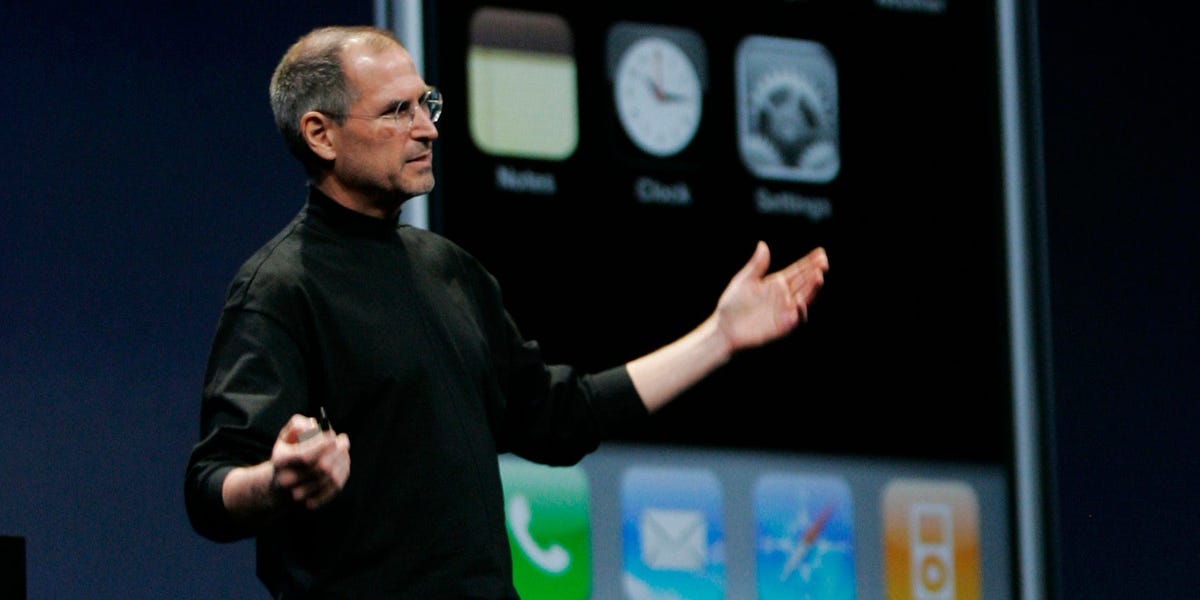Nor has anyone before or since been more successful at captivating audiences with visions of silicon and code transforming the world.
It’s a skill that Jobs’ chief rival, Microsoft cofounder Bill Gates, has long expressed jealousy of. More than a decade after Jobs’ death, Gates says he has still not reached Jobs’ mastery of appearing so natural and unrehearsed onstage.
“Steve Jobs was a natural,” Gates said in an interview with Dax Shepard on the Armchair Expert podcast.
“It was always fun to watch him rehearse because part of his genius was, when he would finally do it, he would make it look like he’s just thinking it up right there,” he added. “I’ll never achieve that level.”
As Brent Schlender and Rick Tetzeli wrote in their 2015 book “Becoming Steve Jobs,” the charismatic CEO would meticulously prepare for keynote presentations — sometimes months in advance.
“I once spent an entire day watching him run through multiple rehearsals of a single presentation, tweaking everything from the color and angle of certain spotlights to editing and rearranging the order of the Keynote presentation slides to improve his pacing,” Schlender wrote.
“In one instance that day,” Schlender continued, “he just sat silently onstage with his chin in his hand, staring at the floor for nearly 15 minutes out of frustration with a wrong lighting cue. He didn’t yell this time but just made everyone wait while he cooled down.”
In the podcast, Gates said the task he and Jobs were each engaged in on stages around the world representing Microsoft and Apple, respectively, was about persuading people and companies to believe in (and buy into) the impact that things like email and spreadsheets could have on their lives and work.
“We even called it evangelization,” he said. “Some people might not like that we stole a term of religion, but telling the story of the magic of software is something that — certainly by the time I was in my 30s — was a big part of the job.”
Nowadays Gates is still drawing on Jobs’ communication style as he seeks to win over support for global health, public education, and the future of AI.
“A big part of the job I had at Microsoft and the job I have now is explaining what we’re up to in a hopefully straightforward way that connects with a particular audience,” he said. “I like trying to explain things and I like getting feedback — what stories resonated or what didn’t connect.”
In a 2019 interview with The Wall Street Journal, Gates said of Jobs: “I wish I could be as magical because I have causes that are in some ways more impactful and I need to make sure they don’t get ignored.”


